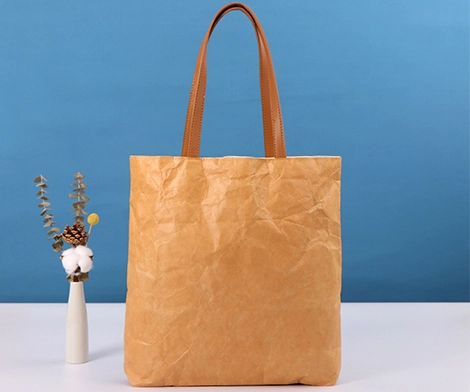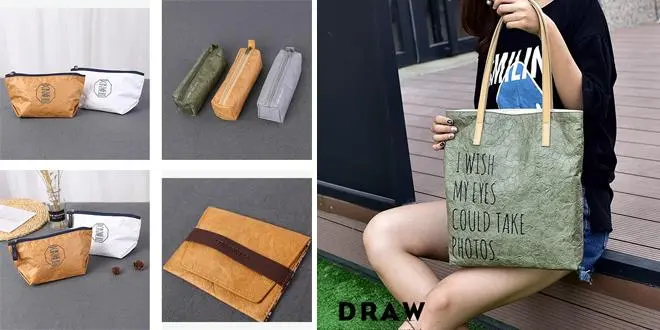

1. Material: Look for a plant fiber tote bag made from natural and sustainable materials such as jute, hemp, or bamboo. These fibers are eco-friendly and biodegradable.
2. Durability: Ensure the tote bag is well-constructed with sturdy stitching and reinforced handles. A durable bag will be able to withstand regular use and carry heavy items without losing its shape.
3. Size and Capacity: Consider your intended use for the tote bag and choose a size that meets your needs. Make sure it is spacious enough to carry your belongings comfortably without being too bulky.

4. Style and Design: Look for a plant fiber tote bag that aligns with your personal style. There are various designs and colors available, so choose one that appeals to you and matches your preferences.
5. Practical Features: Consider additional features like interior pockets, closures (such as zippers or drawstrings), or adjustable straps for added convenience and functionality.
6. Ethical and Sustainable Sourcing: Research the brand's commitment to ethical and sustainable practices. Choose brands that prioritize fair trade, support local communities, and promote environmentally responsible manufacturing processes.

1. Sustainability: Plant fiber tote bags are made from natural and renewable resources like jute, hemp, or bamboo. Compared to bags made from synthetic materials, plant fiber tote bags have a lower carbon footprint, contributing to a greener and more sustainable planet.
2. Eco-Friendly: The production of plant fiber tote bags consumes less energy and water compared to synthetic bags. Additionally, plant fibers are biodegradable, meaning they can naturally decompose over time, reducing the amount of waste in landfills.
3. Durable and Versatile: Plant fiber tote bags are known for their strength and durability. They can withstand heavy loads, making them ideal for carrying groceries, books, or other items. Their versatile design makes them suitable for various activities like shopping, travel, picnics, or visits to the beach.
4. Reusability: One of the significant advantages of plant fiber tote bags is their reusability. By using them repeatedly, individuals can reduce their reliance on single-use plastic bags, thus minimizing plastic waste and its detrimental impact on the environment.
5. Style and Aesthetics: Plant fiber tote bags offer a unique and natural aesthetic that adds a touch of charm to any outfit. They come in various designs, colors, and textures, allowing individuals to express their personal style while advocating for sustainable fashion choices.
6. Conscious Consumerism: By choosing plant fiber tote bags, individuals demonstrate their commitment to conscious consumerism. They contribute to a more sustainable supply chain, support ethical manufacturing practices, and promote a shift towards a greener and more eco-friendly society.

Recycling
Many areas have dedicated recycling programs for Tyvek DuPont bags. Check with your local recycling facilities to see if they accept Tyvek DuPont bags and, if so, follow their guidelines for proper recycling. Some stores also have designated collection bins for Tyvek DuPont bag recycling.

Reuse
Instead of disposing of Tyvek DuPont paper shopping bags after a single use, consider reusing them. Tyvek DuPont bags can be used for various purposes like carrying lunch, storing items. By reusing the bags, you extend their lifespan and reduce the need for new Tyvek DuPont bags.

Return to Store
Some stores have programs in place to collect used Tyvek DuPont bags for recycling. Look for collection bins or inquire with the store staff if they accept Tyvek DuPont bags for recycling. Returning the bags to the store ensures they are responsibly managed and recycled.
Remember, increasing the use of Tyvek DuPont bags altogether is the most sustainable option. Incorporating reusable bags into your shopping routine helps minimize waste and contribute to a more sustainable future.

